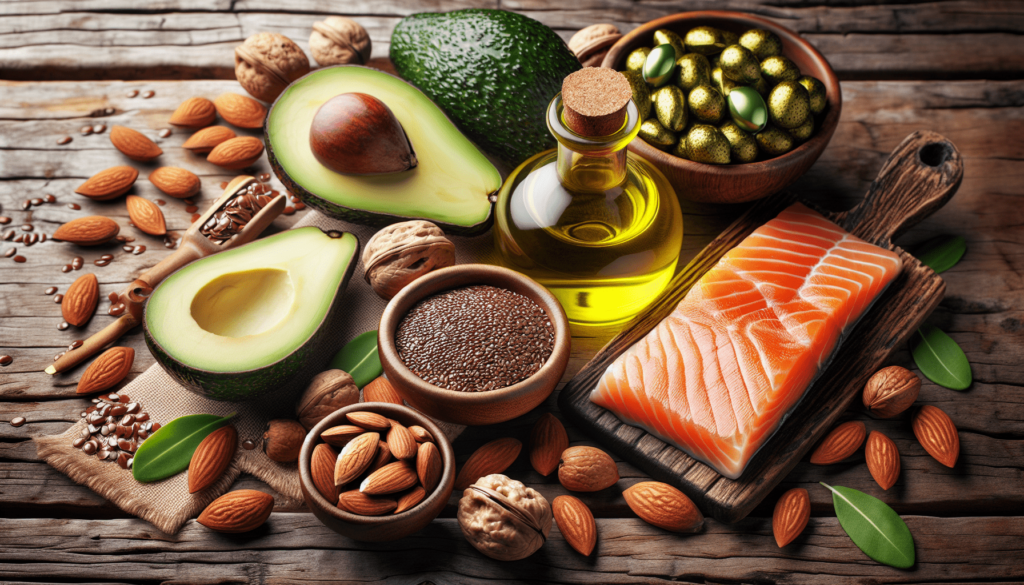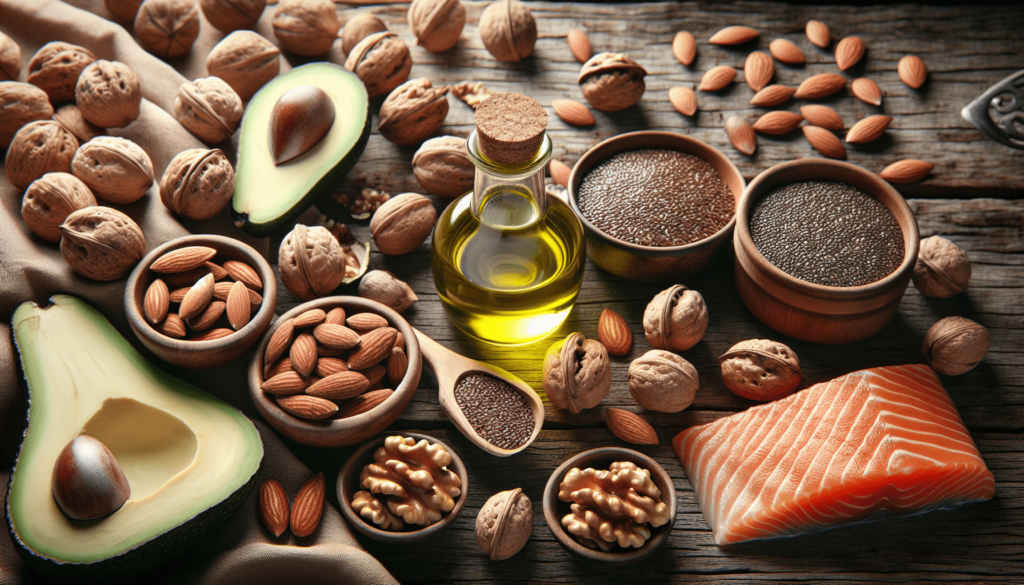Navigating the world of fats can sometimes feel like a tricky balancing act, but incorporating healthy fats into your diet is key to maintaining a well-rounded lifestyle. In this article, we’ll explore the best sources of these beneficial fats, from the monounsaturated richness found in avocados and olive oil, to the hearty omega-3s present in fatty fish like salmon and flaxseeds. Whether you’re looking to boost your heart health, enhance brain function, or simply add more flavor to your meals, we’ve got you covered with top-notch sources that will enrich your eating habits and your health! Have you ever wondered what the best sources of healthy fats are and how they can enhance your diet? Healthy fats play a crucial role in maintaining good health, ranging from supporting brain function to improving skin health. Let’s delve deeper into understanding these fats and where you can find them.
Understanding Healthy Fats
Before we embark on the journey of discovering sources of healthy fats, it’s essential to clarify what we mean by ‘healthy fats.’ Broadly, they can be categorized into monounsaturated fats and polyunsaturated fats, which include omega-3 and omega-6 fatty acids.
Monounsaturated Fats (MUFAs)
Monounsaturated fats are beneficial for heart health as they help reduce bad cholesterol levels and stabilize heart rhythms. Foods rich in monounsaturated fats are usually plant-based and provide a solid energy source.
Polyunsaturated Fats (PUFAs)
Polyunsaturated fats are essential fats, meaning your body cannot produce them, and they must be obtained from your diet. These fats are crucial for cellular health and play a significant role in brain function as well as normal growth and development.
Omega-3 Fatty Acids
Omega-3 fatty acids are a type of polyunsaturated fat which are particularly beneficial for your cardiovascular health, reducing inflammation, and supporting mental health. There are three main types of omega-3s: EPA, DHA, and ALA.
Omega-6 Fatty Acids
While omega-6 fatty acids are also critical to your health, a balanced ratio with omega-3 acids is necessary. Excessive omega-6 acids can lead to inflammation and are often found in processed foods and vegetable oils.
Best Sources of Monounsaturated Fats
Starting with good sources of monounsaturated fats, you’ll find you can incorporate these easily into your daily meals without much fuss.
Avocados
Avocados are not just popular for their taste but are also rich in monounsatured fats. Just one avocado can provide you with approximately 15 grams of healthy fats. Besides, they’re packed with fiber, protein, and essential vitamins.
Nuts
Various nuts such as almonds, pistachios, walnuts, and cashews are excellent sources of monounsaturated fats. They are also great snacks because of their protein and fiber content. Here’s a quick breakdown:
| Nut Type | Monounsaturated Fat (per ounce) |
|---|---|
| Almonds | 9 grams |
| Pistachios | 7 grams |
| Cashews | 7 grams |
| Walnuts | 2.5 grams (mostly PUFAs) |
Olive Oil
A staple in Mediterranean diets, olive oil is celebrated for its high levels of monounsaturated fats. It’s ideal for cooking and dressings alike, providing about 10 grams of monounsaturated fat per tablespoon.

Best Sources of Polyunsaturated Fats
When incorporating polyunsaturated fats in your diet, focusing on balance and sources is key.
Fish and Fish Oil
Fish such as salmon, mackerels, and sardines are rich in omega-3 fatty acids. Incorporating fish into your meals two to three times a week can significantly boost your heart health and mental functioning. Fish oils, like cod liver oil, are also potent sources of DHA and EPA.
Chia Seeds
Chia seeds are not only high in fiber but also excellent sources of ALA, a type of omega-3 fatty acid. Just two tablespoons of chia seeds provide nearly 5 grams of omega-3 fatty acids.
Walnuts
While walnuts are mentioned under monounsaturated fats, they are particularly high in ALA (omega-3), making them unique among nuts. Including them in your diet can help improve the balance of omega fatty acids.
Flaxseeds
Flaxseeds and flaxseed oil are one of the richest sources of ALA. Ground flaxseeds can be a great addition to smoothies, yogurts, and salads, ensuring you get a good dose of polyunsaturated fats with every serving.
Incorporating Healthy Fats in Your Diet
Knowing about the sources of healthy fats is beneficial, but understanding how to integrate them into your diet effectively is crucial for reaping their health benefits.
Cooking with Oils
Use oils rich in monounsaturated fats like olive oil for cooking. For salads, consider flaxseed oil or walnut oil to enhance omega-3 intake.
Snacking Smart
Choose nuts and seeds over processed snacks. They not only offer healthy fats but also provide proteins, fiber, and essential nutrients.
Balanced Meals
Ensure each meal has a good source of healthy fats. Whether it’s through a sprinkle of chia seeds on your breakfast bowl or a handful of walnuts in your lunch salad, small additions can make a big difference.

Conclusion
Understanding and incorporating healthy fats into your diet doesn’t have to be a tedious task. By recognizing the various sources and their benefits, you can make informed choices that enhance your meals and your health. Remember, the key is moderation and balance, ensuring that your intake of fats is diverse and appropriate to your dietary needs.
In conclusion, embracing healthy fats is not about overhauling your diet overnight but gradually integrating these nutrient-rich sources into your daily meals, enhancing both the flavor and nutritional profile of your dishes. So, next time you plan your meal, think about how you can incorporate some of these healthy fats to create a balanced and nourishing diet.
